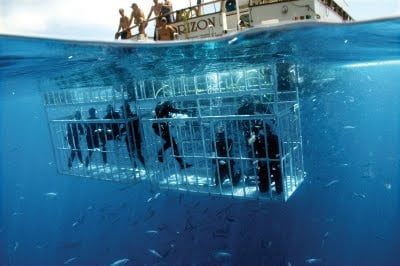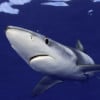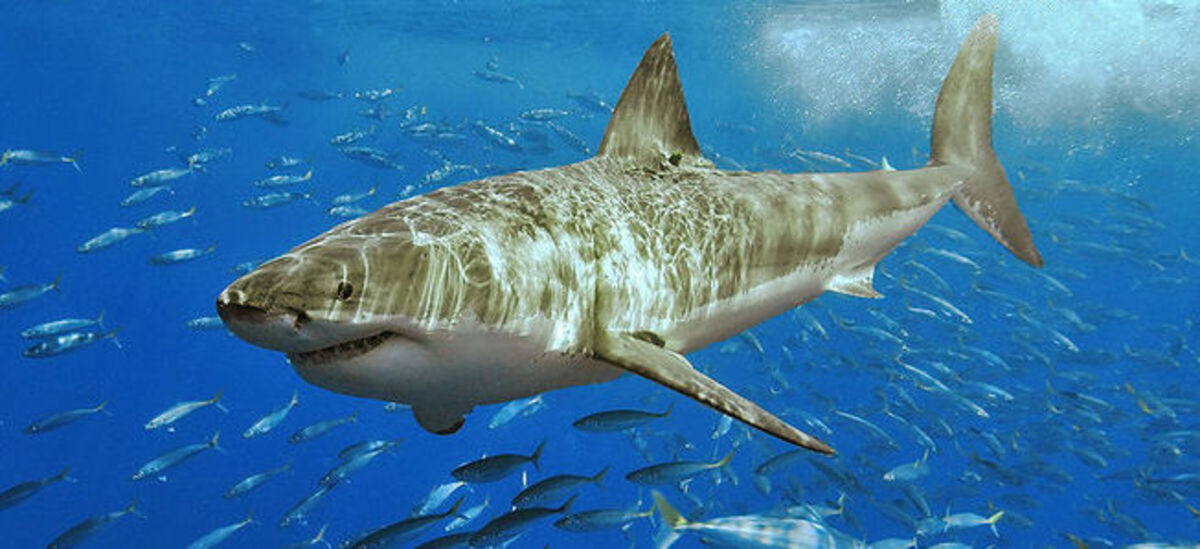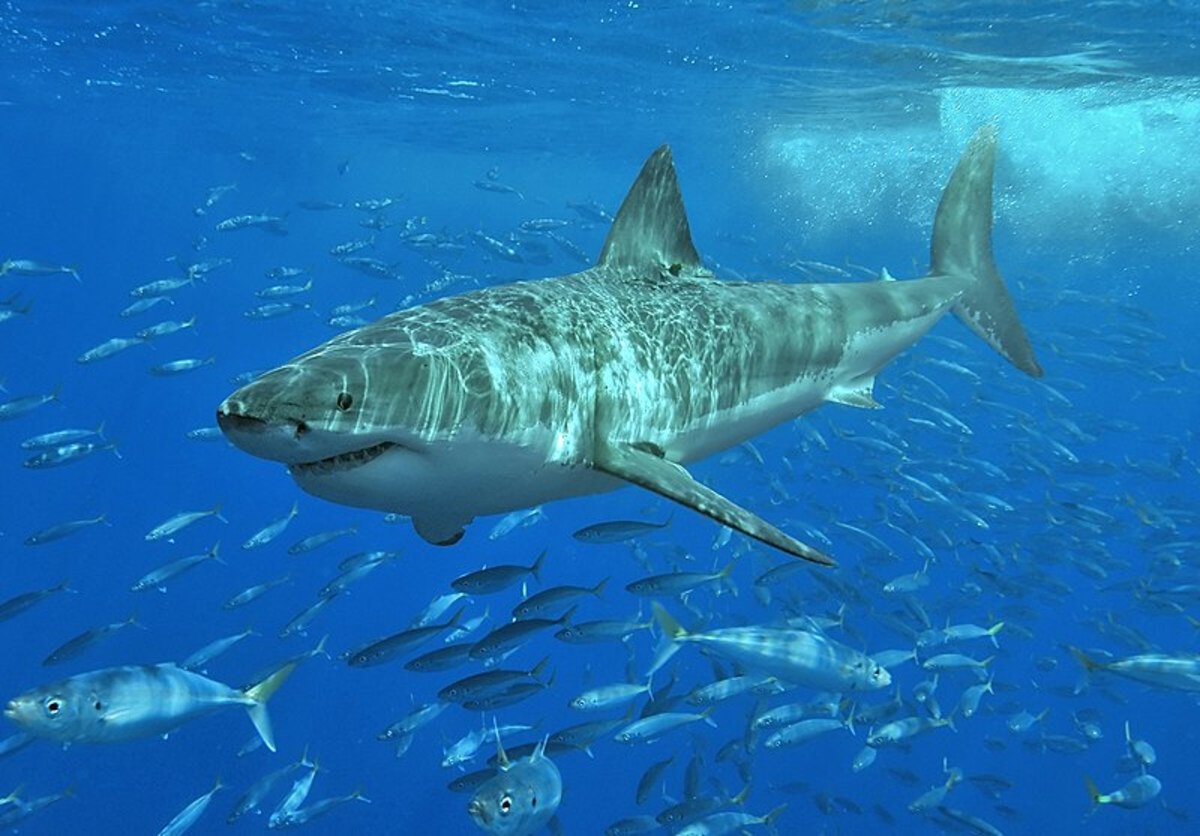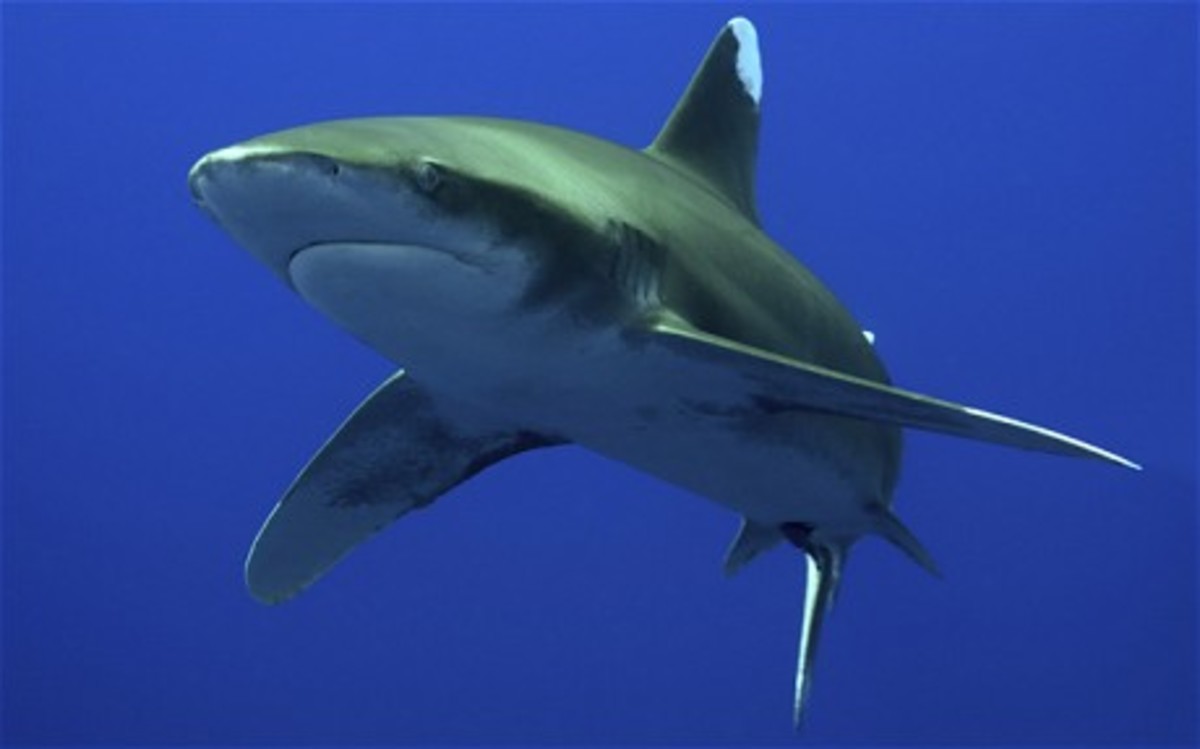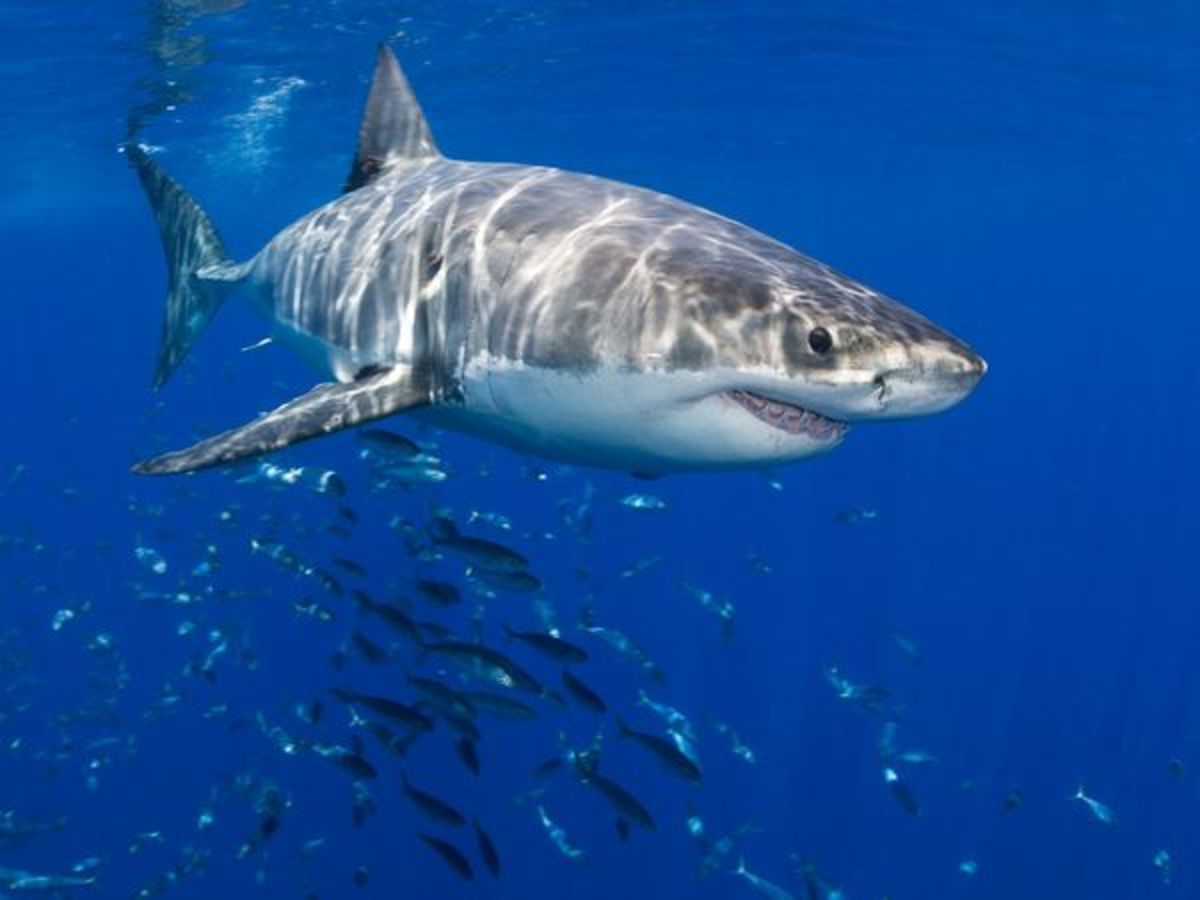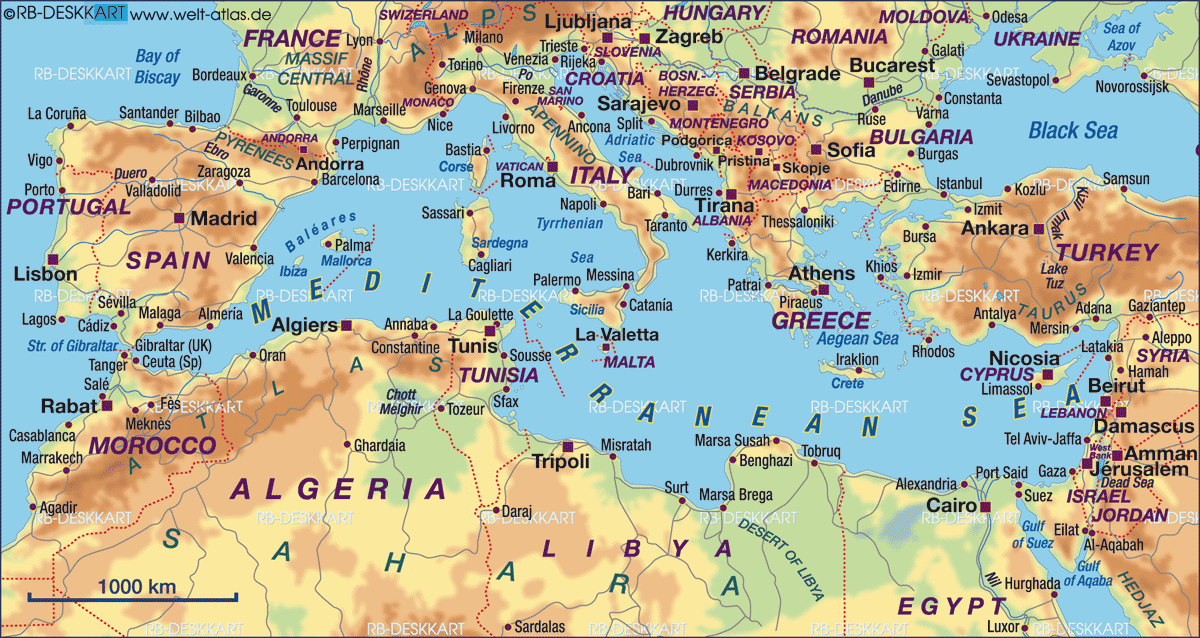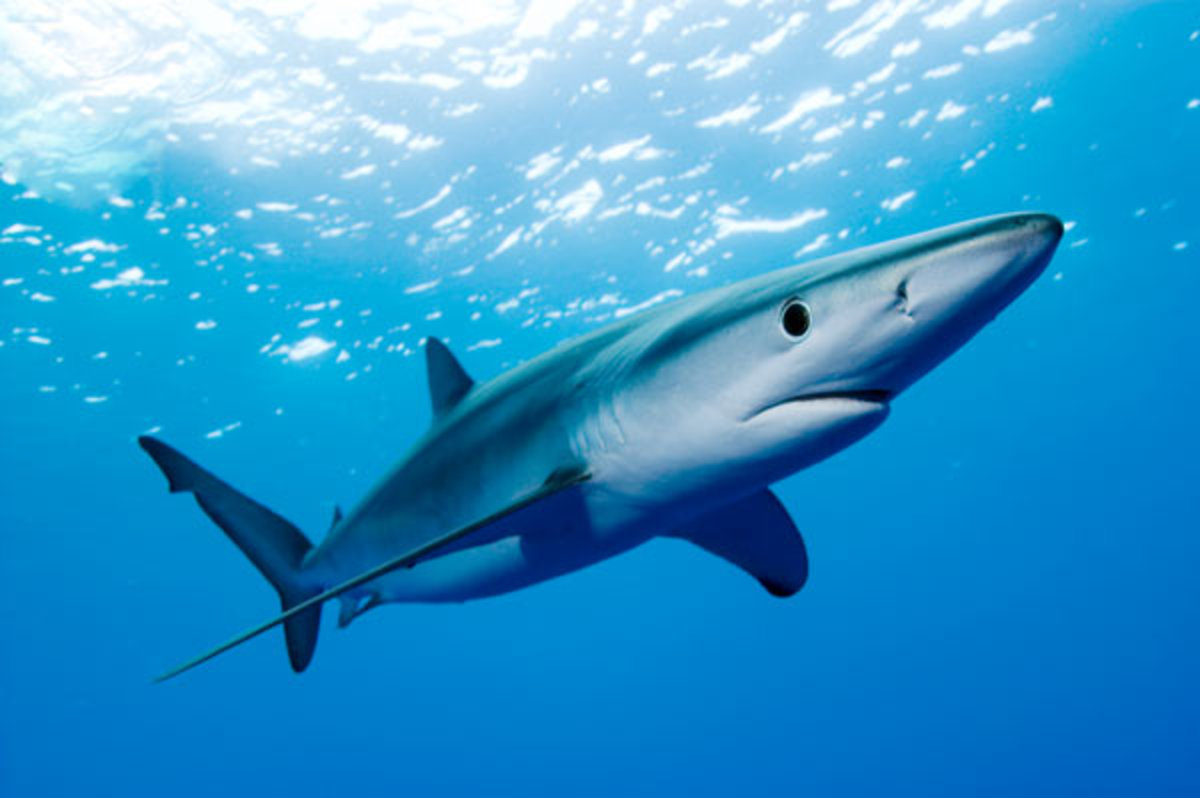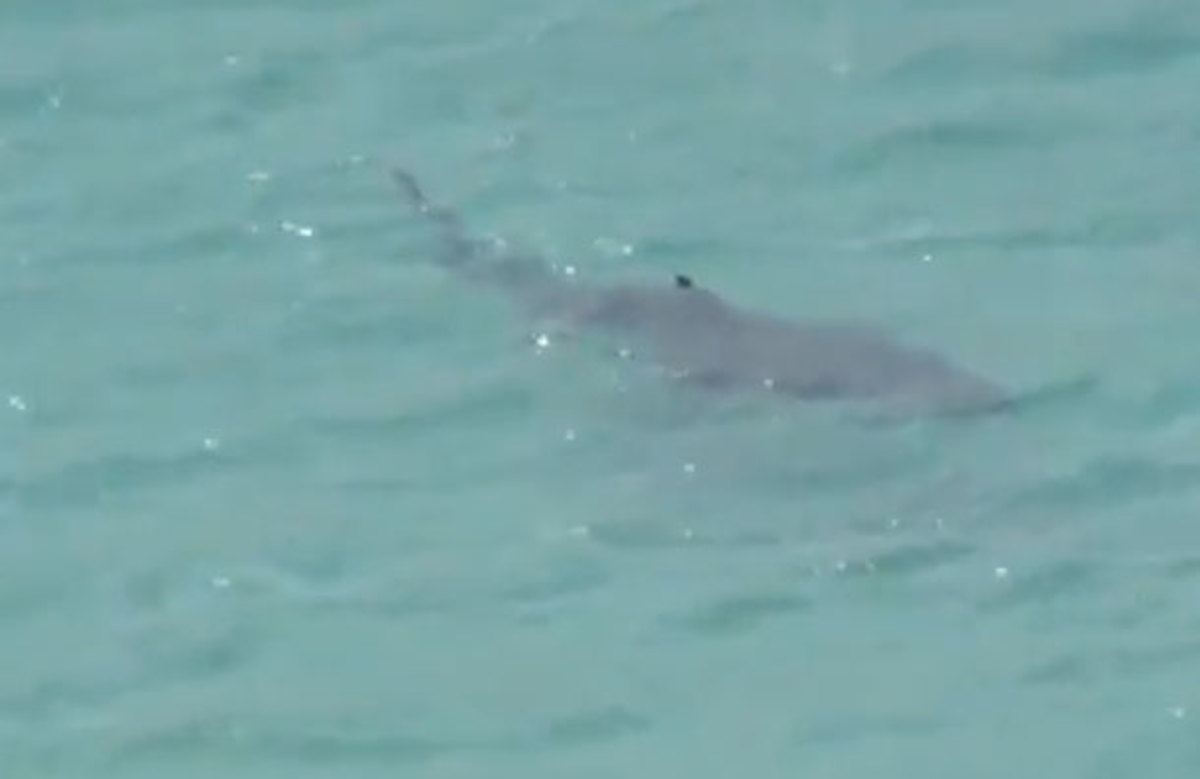- HubPages»
- Education and Science»
- Life Sciences»
- Marine Biology»
- Marine Life
Link Between Cage Diving with Sharks and Increase in Shark Attacks
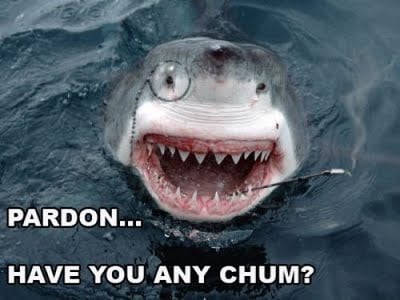
Does cage diving with sharks relate to the increase in shark attacks?
In many parts of the world, sharks are now a protected species. This makes it an offence to hunt down, maim or injure or kill those beautiful sea creatures.
Our oceans sharks are diminishing in numbers and many of them are now on the endangered species list.
Many former shark fishermen have embraced eco-tourism, and turned their boats into shark diving platforms.
People pay a small fortune to be taken out into shark-infested waters, where they can don diving gear and be lowered into the water in protective cages to observe those beautiful creatures from close-up.
The problem lies in that sharks are not always present. As this could mean a disappointing trip for the shark tourists, who may even demand their money back, boat operators 'chum' the waters to encourage sharks to appear.
Chum is bucket-loads of rancid, chopped up fish parts and blood, which sharks can detect from miles away with their highly-tuned olfactory senses.
Can chumming change shark behaviour?
Some are so used to getting this free food, which is the equivalent of giving lolly-pops to children, followed by the appearance of humans in their cages, that they have begun to equate food with humans.
From there, you can see it would only be a small step for sharks to come into shallow waters where people are bathing or surfing, and see 'food'.
There has been a global increase in sharks attacks over the past few years, and in areas not previously prone to shark attacks.
Shark diving at Neptune Islands (warning: graphic images)
Australian Study 2010-2011
Barry Bruce and Russell Bradford of the CSIRO Wealth from Oceans Flagship for the Department of Environment and Natural Resources South Australia undertook a study of shark movements at the Neptune Islands in South Australia.
Great white sharks were tagged with transmitters, the signals of which were picked up by ocean bed receivers connected through a satellite link, and their patterns compared to the results of previous study carried out in 2001 - 2003.
Sharks where chumming (also known as berleying) was carried out, daily arrived at the area just as the boats appeared, and left when the boats left.
They appeared in the same areas at the same time, even on days when the boats were not operating.
This strongly suggests there was learned behaviour and that chumming the waters does change shark behaviour, though not necessarily in a negative way.
They also stayed for longer periods than before, and in greater numbers.
As the area is noted for its large number of pinnipeds - seals and sea lions - the chum offered by the operators could in no way be construed as a main meal for the sharks, whose natural food existed in abundance in the area anyway.
As apex predators, it is the great white shark's responsibility to clean up our oceans and seas, and they do this admirably, feeding on weak and dying sea creatures.
For all we know, they may see chum not as food, but as 'something to be cleaned up' much as the houseproud home-owner may flick away a speck of dust.
So concerned are the Australian government at those changes in shark behaviour, they now want to limit the number of dive operators at the remote Neptune Islands from 5 to 2.
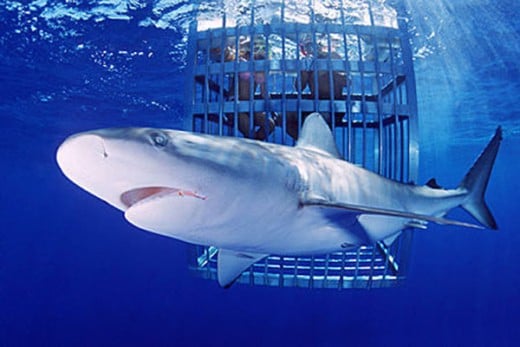
Great white shark bites cage Neptune Islands
Elsewhere, shark diving in cages, and shark chumming, is carried out in California, South Africa, Mexico and in the Red Sea.
South Africans around Port Elizabeth have seen a huge increase in shark chumming by eco-tourism operators, and in full view of crowded beaches full of surfers and bathers, and they have not seen an increase in shark attacks.
Other areas have.
Fish Hoek Beach was the scene of a serious shark attack in 2011 when a bather lost both legs to a great white.
So many sharks have been witnessed in their waters in recent years, that the water is no longer considered safe to bathe in, having a knock-on effect on its local life-saving club which has seen a 25% drop in membership as they can no longer train in the ocean.
Surfing clubs and competitions have had to be cancelled/held elsewhere, as the increase in shark numbers has made the beach unsafe.
There are estimated to be 250 - 300 great white sharks in permanent residence in the area, whereas years ago, there were none.
What has caused their shift in population? Many South African surfers blame the cage dive operators and their chumming of the waters in other coastal bays for causing a shark population shift.
The Red Sea saw a spate of almost unheard of shark attacks at the tourist resort of Sharm el Sheik in late 2010.
Those waters are also chummed by cage dive operators.
Port St John's, an upmarket tourism paradise in south eastern seaboard of South Africa, recently earned the title of Most Deadly beach in the World, thanks to its sixth fatal shark attack in just six years.
No chumming takes place in the area, but who is to say that shark chumming elsewhere hasn't taught some sharks to equate humans with food.
We are not the natural prey of sharks.
Most sharks will take one bite, realise their mistake, and back off.
In the recent spate of shark attacks at Port St Johns, all of those sharks made repeated attacks until the victim died from their wounds.
Something has changed, and perhaps it would be better if shark operators did not chum the waters to bait the sharks until further studies into shark behaviour is carried out.
